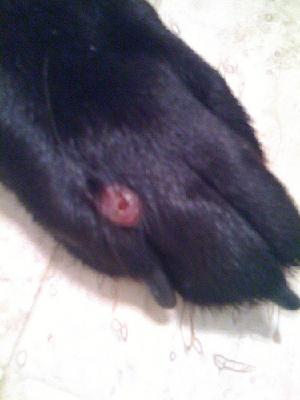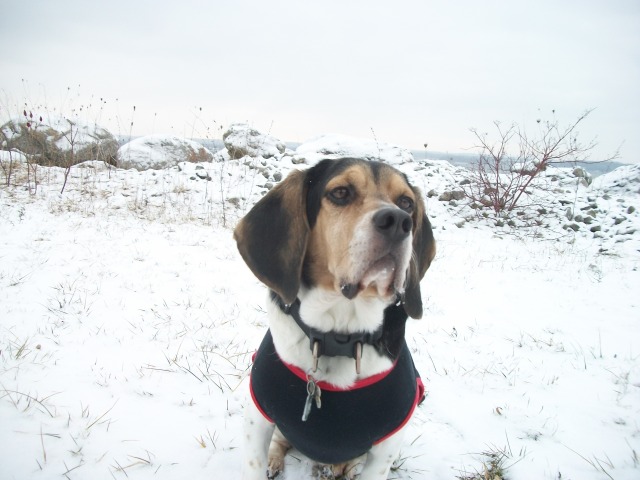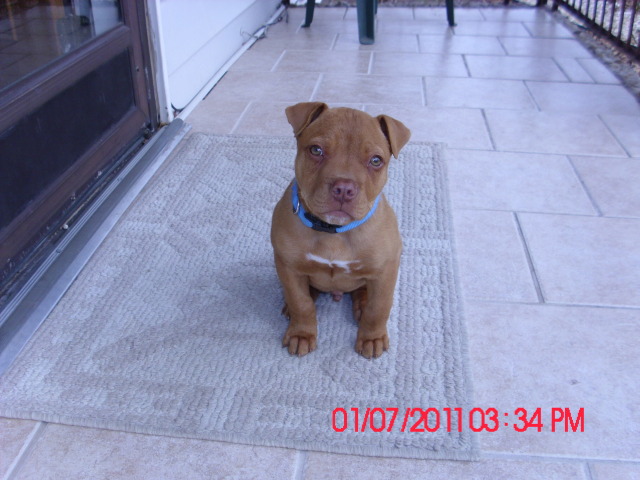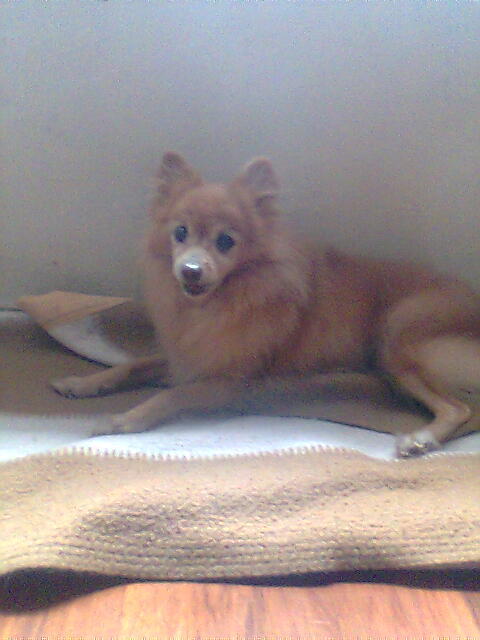QuestionHI PATTI--THE VET HAS GIVEN MY 8 YR OLD 3 LB YORKIE PREDISONE FOR HIS COPD--MY HUSBAND SAYS HIS BREATHING AT NIGHT IS STILL LABORED AND I FEAR WE ARE DOING MORE HARM THAN GOOD--ANY NATURAL TREATMENTS U WOULD SUGGEST?? WE LOVE THIS LITTLE FELLOW MORE THAN ANY 2 HUMANS SHOULD LOVE A FURRY FRIEND!!THANKS JJ
AnswerHi Judy,
If you think your dog is having a reaction to the Prednisone , or if it isn't working as well on your dog as you think it should, contact your veterinarian. There are other medications which may be better tolerated or work better to help your dog breathe easier. If your dog isn't already receiving one, you should ask your veterinarian about using an oral brochodilator, such as Theophyline or Aminophyline. There medications are often the mainstay of the COPD therapy. Another drug which is useful at improving respiratory efficiency is Digoxin. In addition to improving the contractility of the heart muscle, Digoxin appears to improve the function of the diaphragmatic and intercostal muscles. Digoxyn should only be used in dogs that have had a thorough cardiac work-up, since the drug can worsen some cardiac arrhytmias if they are present.
The best treatments for your dog's chronic obstructive pulmonary disease will come from your veterinarian in the form of prescription medications. It may help your dog if you would place an air filter near where he spends a lot of time. Trying to provide an environment that's free of secondhand smoke, pollution and dust irritation is helpful in COPD. Setting up a vaporizer or humidifier near where your dog spends a lot of time can help his breathing. Set it up for 15-20 minute intervals a couple of times daily. You have to clean vaporizers and humidifiers daily, or they can spew bacteria, which is counter productive. If you don't have a vaporizer, leave your dog (or sit with him) in the bathroom with the shower on to create a misty vapor.
Good dental hygiene in individuals with COPD is a valuable means of reducing low grade bacterial contamination of the lungs through inhalation. Dogs with COPD should have their teeth professionally scaled and polished on a regular basis. Maintaining clean teeth by brushing or using special mouth rinses containing chlorhexidine or zinc sulfate will reduce oral bacteria.
If your dog is overweight, weight loss is probably the best thing you can do for your dog. It can mean a significant improvement in cough frequency, attitude, and exercise tolerance.
Adding antioxidants to your dog's diet might be helpful, but their beneficial results might not be seen for weeks or months. Antioxidants (vitamins A, C and E, selenium and alpha lipoic acid) help dogs (and people) fight disease and infection more easily. You can get an antioxidant supplement, brands to look for are Cell Advance 440, Thorne Small Animal Antioxidant, Drs. Foster & Smith Premium Plus AntioxiTabs, Only Natural Pet Antioxidant Boost, amongst others.
You could also add foods that high in antioxidant value to your dog's daily diet. Foods to use are broccoli (florets or stems), blueberries, red kidney beans, pinto beans, carrots, cranberries, blackberries, raspberries, avocados, squash, and pumpkin. Foods with darker, richer colors like orange, yellow, blue, and red tend to be higher in antioxidants. Start off slow with adding these foods to your dog's diet. If you over do it too quickly, your dog can develop diarrhea.
You read more about antioxidants here:
http://www.petplace.com/dogs/dietary-antioxidants-are-important-for-your-pet/pag...
I hope I've been a help!
Best of luck,
Patti

 Redish bump between dogs toes
QuestionHello I have a three year old Australian Shephe
Redish bump between dogs toes
QuestionHello I have a three year old Australian Shephe
 Temperature before birth
QuestionQUESTION: My female cheweenie is on day 52 of h
Temperature before birth
QuestionQUESTION: My female cheweenie is on day 52 of h
 2nd Dog
Question
Winston
Hi, I have a beagle/bassest hou
2nd Dog
Question
Winston
Hi, I have a beagle/bassest hou
 puppy medical concerns
Question
Rusty
my 11 week old red nose pit bull at time
puppy medical concerns
Question
Rusty
my 11 week old red nose pit bull at time
 Mastitis
QuestionQUESTION: Good morning Karen.
My Pomeranian is
Mastitis
QuestionQUESTION: Good morning Karen.
My Pomeranian is